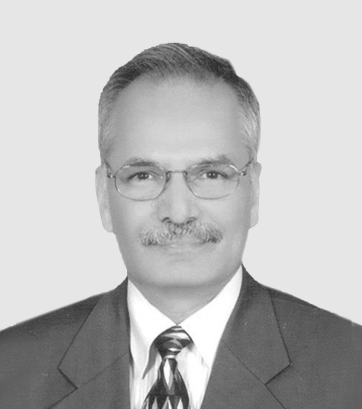Kashmir: the cauldron of oppression
The decision by an Indian court to impose life imprisonment on Yasin Malik, a Kashmiri freedom fighter, is yet another instance of New Delhi’s brutal suppression of Kashmiris’ right to self-determination and denial of their freedoms.
Yasin Malik’s incarceration for life marks the culmination of BJP’s long standing policy to either eliminate the Kashmiri resistance through a policy of systematic torture or by targeting the brave Kashmiri leaders like Yasin Malik by throwing them into jail forever on fabricated charges.
Afzal Guru and Burhan Wani are some of the more prominent Kashmiri leaders who have been martyred for the just cause of Kashmir.
Amnesty International, Human Rights Watch and other human rights organization have documented New Delhi’s savage policy which has turned life for 9 million Muslim Kashmiris into a “living hell”.
The All Parties Hurriyat Conference has condemned the verdict, saying that Yasin Malik since 1994 pursued peaceful and democratic means of conflict resolution. Describing Yasin Malik as a “strong votary of dialogue and negotiations between the concerned parties to the conflict i.e. people of J & K, India and Pakistan, he has been relentlessly and selflessly seeking its resolution. Yet he was arrested, shifted to Tihar and has now been convicted in invented cases under draconian laws for his political beliefs on the J & K dispute and for representing the sentiments of the people.”
Islamabad has done the right thing in launching a worldwide campaign for the release of Yasin Malik. Through this campaign Islamabad hopes to highlight not only the plight of Kashmiris but also prick the sleeping moral conscience of the world.
One may argue that such campaigns are not going to be effective in a world dominated by geopolitical and geo-economic concerns.
Yet Pakistan must lend its geostrategic weight to the Kashmiri peoples cry for freedom. A great historical wrong was committed against the people of Kashmir by the forces of British imperialism when in 1947, in clear violation of the principles of geographical contiguity and national self-determination, the district Gurdaspur was awarded to India rather than the new state of Pakistan.
This arbitrariness was never acknowledged nor rectified by the successive British governments. Historian Alastair Lamb has described this British injustice as the “disputed legacy” of Jammu Kashmir.
Yasin Malik’s incarceration is an extra-ordinary case of the violations of Kashmiris right to freedom and denial of justice. First of all, he was arrested in 2019 on totally false charges of committing “terrorist” acts, illegally raising funds, belonging to terrorist organization, and criminal conspiracy and sedition.”
Secondly, after his arrest he has been imprisoned by Indian security forces without due process of law and has been kept in isolation in the infamous Tihar jail. There are credible reports including statements by his wife Mishal Malik that he has been tortured while in police custody. For the past three years he has not been allowed to maintain any kind of contact with his wife and nine year old daughter. Thirdly, Yasin Malik has not been provided any legal counsel and he has been fighting his case alone.
During the hearing Malik told the court that he had given up violence in 1994 and declared that he “would follow the peace path of Mahatma Gandhi and engage in non-violent political struggle.” The court observed that in its opinion there was no reformation in him. It said Malik may have given up the gun in 1994, but he “never expressed any regret for the violence committed prior to 994.”
India claims to be the largest democracy, but its treatment of the Kashmiri Muslims makes a total mockery of this assertion.
The intensification of repression against Kashmiri Muslims has to be viewed against the backdrop of BJP’s decision to eliminate the status of the autonomous state of the State of Jammu and Kashmir in August 2019 and annex it as a Union territory directly rule by New Delhi. This was a blatant attempt not only to do away with the disputed status of Kashmir, but also change its demographic structure by eliminating article 35 A that had recognized to own the land by state subjects only.
As observed by Sumantra Bose in his new book, Kashmir at the Crossroads: Inside a 21st Century Conflict: “The Hindu nationalist government’s Kashmir strategy relies crucially on divide-and-rule, by exploiting the social and exploiting the social and political heterogeneity of the pre-August 2019 Indian state of Jammu and Kashmir. This strategy seeks to pit Jammu Hindus against Kashmiri Muslims, and Ladakhi Buddhists against Ladakhi Muslims.”
However hard New Delhi may try to deprive Kashmir Muslim of their undeniable right to freedom particularly their right to ancestral land, such policies based on force of arms are bound to boomerang in the long run.
By silencing the voices of dissent and protest in occupied Kashmir, New Delhi’s approach has already run into a cul-de-sac. Kashmiri Muslims may appear to be without a cohesive and organized resistance, but their will to fight Indian oppression remains intact. Many in Pakistan have argued that we should wait for the Modi era to come to an end before we can return to the dialogue as a forum for seeking just settlement of the Kashmir dispute.
As perceptively noted by Sumantra Bose, “The end of the Modi era would not in itself lead to dramatic turnaround in Kashmir, in part because the BJP would remain in play to an opposition party and no doubt deploy its ultra-hardline Kashmir card against its opponents…A better future in Kashmir hinges crucially …on whether India’s democratic and federalist structure can be saved from the Hindu nationalist onslaught. If it can, then the Hindu nationalist’s attempt to erase Kashmir as a political question may turn out to have provided a clean state for the crafting of a negotiated settlement.”
The writer is a political scientist and defence analyst










